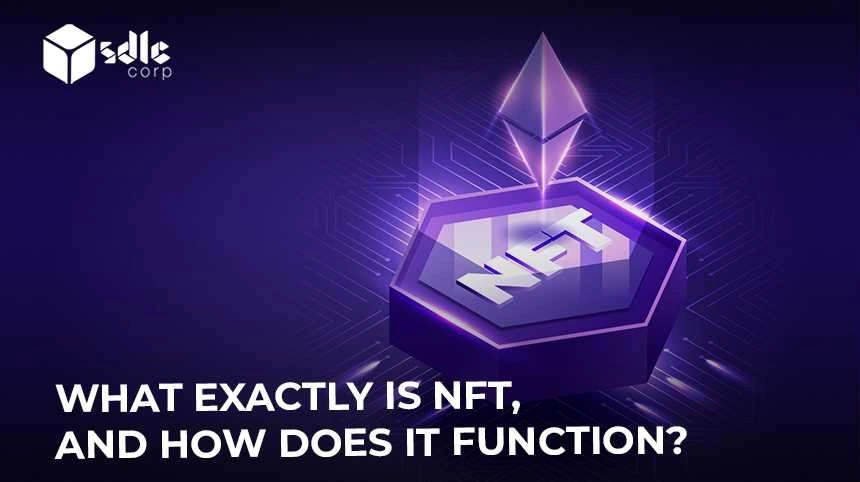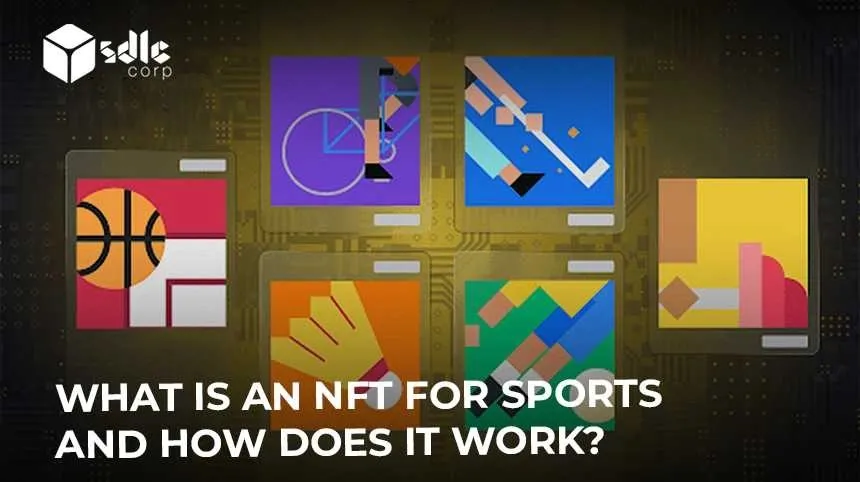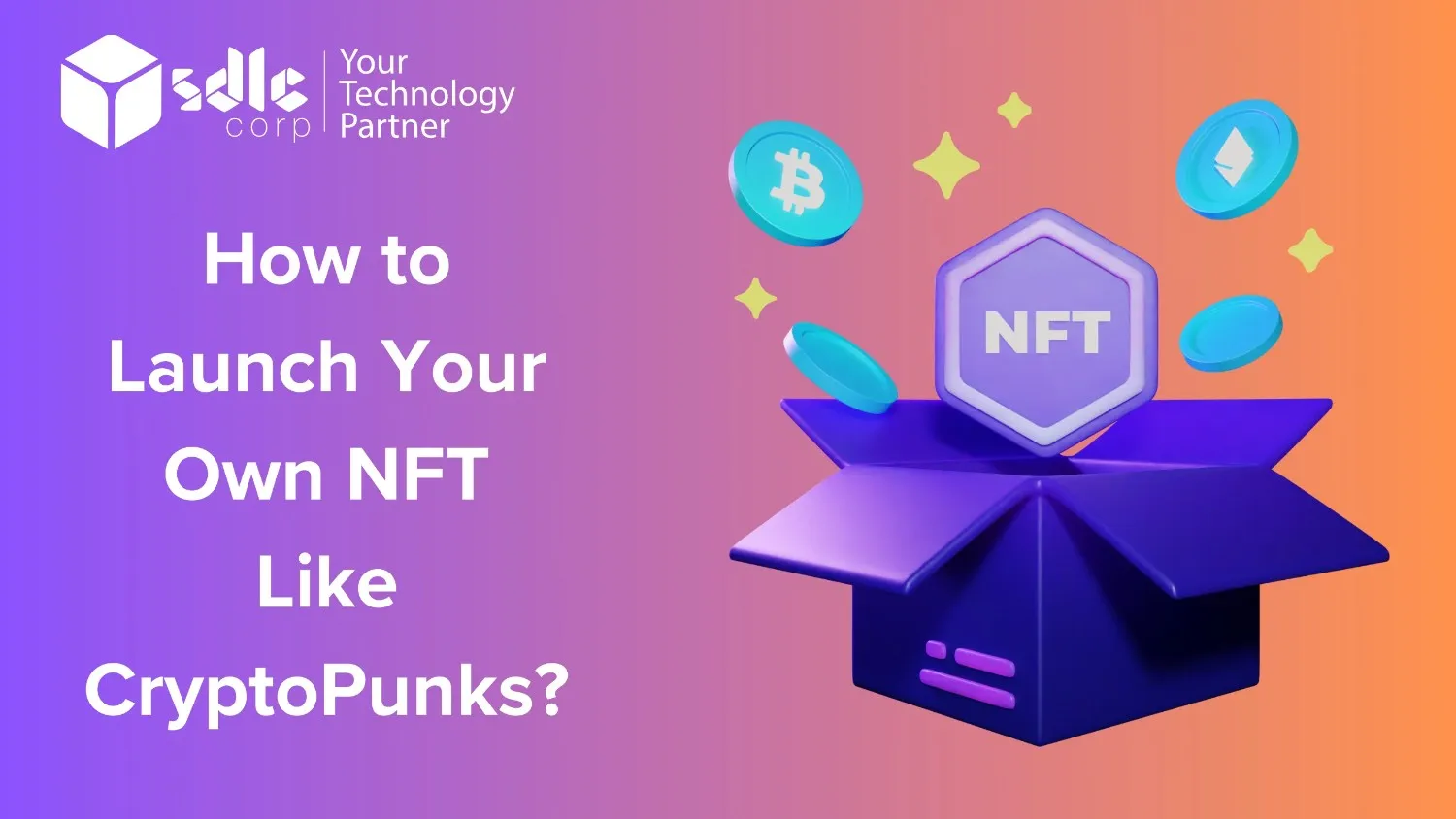Introduction
NFTs are transforming the gaming industry by enabling true ownership of in-game assets through decentralized technology. With NFT development, game developers can create unique, tokenized items such as characters, weapons, and skins that players can buy, sell, and trade across different platforms. This decentralization of game assets empowers players to have full control over their digital items, moving beyond traditional game ecosystems where assets are locked in a single game.
Through Web3 game development services, developers can integrate NFTs into their games, enabling secure, blockchain-based ownership and creating new opportunities for player engagement and monetization. This opens the door for players to truly own their in-game assets and even profit from them in secondary markets, revolutionizing the gaming experience.
What is NFT Gaming and How Does It Work?
NFT gaming integrates blockchain technology into video games, allowing players to own, trade, and sell in-game assets as NFTs. Through NFT development, unique game assets such as characters, weapons, and skins can be tokenized, giving players true ownership. With Web3 game development services, these assets become part of decentralized ecosystems, enabling secure transactions and trading on NFT marketplaces. In Metaverse NFT game development, players can interact in virtual worlds with NFT-based assets, further enhancing the gaming experience. NFT marketplace development enables the buying, selling, and trading of these assets, creating a new economy within the gaming industry.
Boost Your Earnings with NFT Staking Now!
Leading NFT staking platform development company offering secure, scalable, and customizable staking solutions.

How is NFT Gaming Changing the Gaming Industry?
NFT gaming service in many ways. So, let’s traverse the most remarkable and common ways NFT games have deranged traditional gaming.
1. A Source of Income via Play-to-Earn Games
Gaming has customarily been play-to-win, where the users buy items as well as upgrades that help them with no real economical return. Furthermore, there are two ways to earn play-to-earn games:
(a) Trading NFTs.
(b) Earning in-game rewards and cryptocurrencies.
2. The Rise of Play-to-Earn Guilds
The vogue of decentralized games has created Play-to-Earn which helps new players get started. Moreover, guild members can rent in-game assets. Furthermore, the lender will secure a percentage of the player’s earnings while the player gets what they need to start gaming. Play-to-Earn guilds are a new occurrence that depends on the victory of the NFT gaming space and its demand.
3. Interoperability of Game Assets
One of the significant characteristics of NFT games is the component of interaction. Furthermore, blockchain-based games possess interoperability. Apart from this, NFT games can exist on the same or interoperable blockchains.
4. NFT Staking
NFT Staking is one of the popular as well as interesting developments. Some NFT games give allowance to the users to lock the NFTs cryptocurrencies in smart contracts.
Explore our other insights!

What Exactly is NFT, And How Does It Function?
Imagine purchasing a digital painting on the internet at a reasonable price and receiving a unique digital token

What is an NFT for Sports and How Does It Work?
The emergence of Non-Fungible Tokens (NFTs) has revolutionized several industries, with the sports sector being one of the

How to Launch Your Own NFT Like CryptoPunks?
Introduction Launching your own NFT like CryptoPunks may seem like a daunting task, but with the right approach,
Benefits Of Gaming NFT
There are many benefits of decentralized gameplay which includes:
Ownership
Traditional-in-game purchases are one-time, non-transferrable investments that end up locked in a single gaming world.in addition to this, using NFTs in gaming domain permits the players ownership of their in-game assets in place of game developers. Moreover, through blockchain technology, gamers can save in-game purchases, sell them to other players or else move them into other supported games.
Provable Scarcity
Collectors benefit authenticity, and therefore the scarcity of in-game NFT purchases is demonstrable through the permanent records submerged in a NFT’s underlying blockchain network. It authenticates the number as well as uniqueness of each NFT along with its ownership history.
Immutability
When a traditional online game shuts down, the users lose all of their in-game purchases. Moreover, NFT exists independently of a specific gaming platform and lives on the blockchain. Furthermore, blockchain-enabled game assets cannot be replicated because of the permanent record each NFT generates upon issuance.
Join the Future of Gaming with Web3 Tech!
Web3 game development leverages blockchain for decentralized gaming, enabling player ownership of assets and NFTs.

How are Games and NFT Both Going to Work Together?
With the growing influence of gaming and the rapid rise of the crypto world, the two fields are merging at an unprecedented level. NFTs are becoming valuable for in-game purchases, allowing players to trade or even lend their assets to others in exchange for payments. In various game genres, characters, avatars, and other in-game assets can be tokenized as NFTs, giving players full ownership and the ability to use or trade them. This integration not only enhances gameplay but also creates new opportunities for players to earn and interact within the gaming ecosystem.
What is A Blockchain?
A blockchain, also referred to as Distributed Ledger Technology (DLT), is a record that anyone can add to but cannot alter, and it is not controlled by any single person or entity. The core concept of blockchain is that it operates as a ledger with numerous digital copies distributed across multiple locations, ensuring decentralization and preventing any one party from controlling the stored information. In addition to being decentralized, blockchain enables efficient tracking of assets. What sets blockchain apart is its ability to facilitate the trade and traceability of virtually anything on its network, which significantly reduces risks.
NFTs and the Future of the Blockchain Coming Industry
While the adoption of NFTs in the gaming world offers numerous benefits, it also presents significant challenges that need to be addressed. NFTs must be made more appealing and user-friendly for mainstream consumers, especially those who may not be tech-savvy. Despite these obstacles, the potential for profit in the gaming industry will encourage more non-blockchain-focused brands to explore the use of NFTs. At the same time, the growing success of gaming dApps will help drive improvements in NFT infrastructure, further accelerating their integration into the gaming ecosystem.
Build Your NFT World, Rule the Game!
Develop immersive Metaverse NFT games with unique assets, player-owned economies, and decentralized experiences.

What is the Point of an NFT?
The point of an NFT (Non-Fungible Token) is to provide digital ownership and authenticity for unique assets on a blockchain. Unlike traditional digital files that can be copied or shared, NFTs are one-of-a-kind and verifiable, giving creators and owners proof of originality. This technology allows artists, musicians, and creators to tokenize their work, creating new revenue streams and enabling direct transactions with buyers. NFTs can represent anything from digital art to in-game assets, collectibles, and even virtual real estate.
For businesses, NFTs offer innovative ways to engage customers, create scarcity, and generate brand loyalty. They enable users to trade, sell, or lend their digital assets, often through NFT marketplace development. The blockchain ensures transparency, security, and the immutability of ownership records, making NFTs a powerful tool for decentralized ownership. The unique value and traceability of NFTs open up endless possibilities in digital commerce and the NFT development landscape.
Conclusion
In conclusion, NFTs play a transformative role in decentralizing game assets by allowing players to truly own, trade, and monetize in-game items, characters, and resources. By leveraging NFT development and integrating blockchain technology into gaming ecosystems, developers can create unique, tokenized assets that operate independently of any central authority. This enables players to trade assets across different platforms and even sell them on NFT marketplace platforms, creating new opportunities for revenue generation. With advancements in Web3 game development services and Metaverse NFT game development, decentralized game assets are set to revolutionize the gaming industry, providing both players and developers with greater control, transparency, and financial incentives.
Why Should You Choose SDLC CORP NFT Development Services?
Choosing SDLC Corp for NFT development services ensures that you are partnering with a trusted leader in blockchain technology. SDLC Corp offers end-to-end solutions, from creating unique NFTs to building scalable NFT marketplace development platforms. As experts in Web3 game development services, they empower developers to integrate NFTs into immersive gaming environments. Whether you’re building a virtual world through Metaverse NFT game development or seeking to tokenize assets, SDLC Corp provides seamless solutions.
Additionally, as a top-tier crypto game development company, SDLC Corp specializes in creating innovative blockchain-based games where players can own, trade, and monetize in-game assets. Their expertise as an NFT token development company ensures that tokens are secure, customizable, and optimized for decentralized environments. By leveraging their comprehensive knowledge of Web3 game development and NFT ecosystems, SDLC Corp helps businesses and creators unlock new opportunities in the digital and gaming industries.



